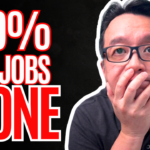
The Retirement Strategy You’re Getting Wrong – And How To Fix It

Every bull market has its darlings—stocks that dominate headlines and ignite dreams of quick wealth. But chasing these “hot” stocks often leads investors astray. Whether it’s Nvidia, Gamestop, or MicroStrategy, the same question arises: Should I invest in them?
Here’s the short answer: It depends. Smart investing is all about context—understanding your stage in life, the purpose of your investment, and the quality of the assets you’re considering. Ignoring these factors can turn your portfolio into a gamble instead of a tool for long-term financial security.
In this article, we’ll explore:
- Why your life stage matters more than you think.
- How aligning your investments with your goals can make all the difference.
- How to evaluate the true quality of an investment.
Let’s dive in and uncover the mistakes you might be making—and how to fix them for a low-stress, purpose-led investment strategy.
1. Why Your Stage in Life Matters
Understanding Life Stages and Risk Tolerance
One of the most overlooked factors in investing is how your stage in life affects your financial strategy. What works for someone in their 20s can spell disaster for someone nearing retirement.
Take “John,” for example. In his 40s, John was heavily investing in MicroStrategy, drawn by its Bitcoin exposure. While his enthusiasm was understandable, my advice to him was to scale back—and thankfully, he did, just in time.

At this stage of life, capital preservation becomes as important as growth. While calculated risks can still be part of your portfolio, they should be limited to a small portion—around 1-5% of your investments.
The reason is simple: Time is less forgiving in your 40s. A market downturn could erase years of progress, leaving you with fewer working years to recover. This is a harsh reality I’ve seen many investors face, particularly during speculative asset booms like the cryptocurrency rush.
2. Defining the Purpose of Your Investment
What Are You Investing For?
Before you make any investment, ask yourself: What’s the purpose of this money? Are you building a nest egg for retirement? Creating passive income? Funding a dream project? Or are you investing because you heard someone recommend it over drinks or on YouTube?
Your answer should guide your strategy. If you’re building a nest egg for retirement, consistency matters more than excitement. For example, investing in index funds like the S&P 500 (SPY) or the NASDAQ 100 (QQQ) might seem dull compared to speculative stocks, but the results speak for themselves. A $1,000 monthly investment in the S&P 500 over 20 years would yield over $1 million. The NASDAQ 100? $1.8 million.
If your goal is passive income, dividend stocks, REITs, or other income-generating assets may be a better fit. These investments won’t grow as quickly, but they provide regular cash flow, which is ideal for living expenses or reinvestment.
3. Evaluating the Quality of Investments
Speculation vs. Investing
Many people blur the line between speculation and investing. Speculation is akin to gambling, relying on hope that the asset’s value will increase. Investing, on the other hand, focuses on acquiring assets with intrinsic value.
Take land as an example. On its own, land is speculative because its value is based solely on what someone else might pay for it in the future. However, if you develop that land—for instance, by building income-generating properties—you can now assess its value based on rental income, creating a tangible investment.
This principle is especially relevant to stocks like MicroStrategy. With its software business taking a backseat to Bitcoin holdings, it operates more like a speculative play tied to cryptocurrency prices. For those considering speculative assets, it’s critical to understand the asset deeply and be willing to lose your entire investment.
The Two-Question Litmus Test
When evaluating any stock, I always ask two critical questions:
- Is this a good business?
- Is it priced below its valuation?
For me, MicroStrategy fails on both counts. Its heavy reliance on Bitcoin makes it volatile and speculative. While there are better growth companies with stronger fundamentals—such as Palantir, for instance—even they are not without risks. It’s crucial to evaluate every potential investment through the lens of fundamental value and price. A good investment is only good if you buy it at the right price.
The Mindset Shift: Investing Doesn’t Have to Be Exciting
Dispelling the “Thrill” Myth
Many investors fall into the trap of chasing excitement. Hot stocks and trendy assets often promise quick returns but deliver sleepless nights instead. Investing isn’t about adrenaline rushes or pub bragging rights—it’s about methodical, consistent growth that supports your broader life goals.
Dispelling the “Boring=Poor Returns” Myth
Boring investments, like index funds or dividend-paying stocks, may not grab headlines, but they quietly grow your wealth over time. Many investors dismiss these as too ‘boring’ to provide meaningful returns. But as we observed earlier index funds can make you a millionaire.
Focus on Purpose-Led Investing
Purpose-led investing shifts your focus from excitement to intentionality. By aligning your investments with your life goals—whether that’s financial independence, a comfortable retirement, or funding a dream—you create a low-stress path to wealth.
Conclusion
Investing is not about picking the next big stock or timing the market perfectly. Instead, it’s about aligning your financial strategy with your stage in life, understanding the purpose behind your investments, and ensuring the quality of your assets.
Remember, consistency beats excitement, and purpose-led investing can provide the clarity and stability needed to build long-term wealth. When you focus on these principles, you’ll not only secure your financial future but also enjoy the freedom to live a life of purpose and fulfillment.
Your Next Step
To help you take the next step, I’m offering a free, on-demand 4-day Lifestyle Income Workshop. This series dives deeper into purpose-led investing, showing you how to build multiple income streams without stress. Whether you’re a beginner or looking to refine your strategies, this workshop will change your approach to money and investing.
Visit start.purpostry.com/workshop to sign up for free. Let’s build your financial future—mastery not required.
FAQs
- What is purpose-led investing?
Purpose-led investing focuses on aligning your financial decisions with your long-term goals and values rather than chasing trends or excitement. - Why is capital preservation important as you age?
As you grow older, recovering from financial losses becomes harder. Preserving capital ensures you can maintain your standard of living and meet future financial needs. - How do index ETFs compare to speculative stocks?
Index ETFs like SPY or QQQ offer consistent, long-term growth, while speculative stocks are riskier and subject to significant volatility. - What’s the difference between speculation and fundamental investing?
Speculation relies on hope and market sentiment, while fundamental investing focuses on assets with intrinsic value, such as those generating reliable income. - How can I start building a balanced portfolio today?
Begin by assessing your life stage and investment goals. Combine growth-oriented assets like index ETFs with income-generating investments like dividend stocks or REITs for a balanced approach.
























Recent Comments